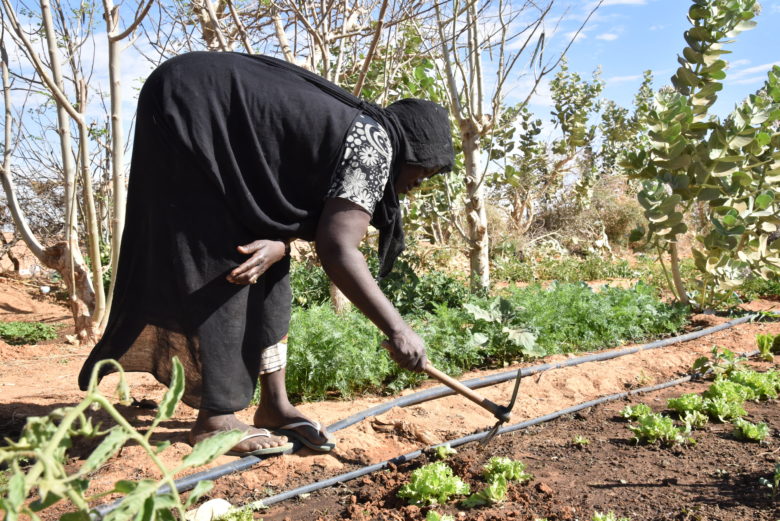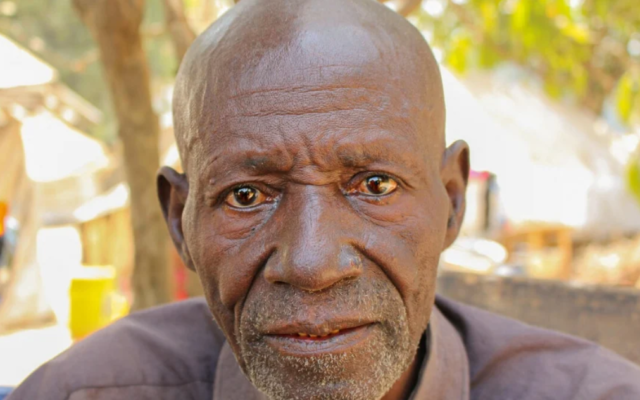‘Whoever has planted a tree has not lived in vain’
Refugees and locals in Mauritania exchange strategies for adapting to climate change.
© UNHCR/Viola Bruttomesso
When Ahmedou Ag ElBokhary arrived at Mbera refugee camp in south-eastern Mauritania after fleeing Mali’s conflict in 2012, he was surprised by the lack of vegetable gardens in nearby villages.
“When we arrived here, there were gardens only in Bassikounou and Fassala [the two main towns in this part of Mauritania’s Hodh Chargui region]. All the small villages around had no gardens,” he recalls.
Like much of the Sahel region, both Mali and Mauritania are feeling the adverse effects of climate change – from increasingly unpredictable rainfall, to land degradation and desertification. But back in Mali, ElBokhary and his compatriots had found ways to coax life from the soil. They conserved the little water available by using sunken seed beds and compost and planted seeds they knew could withstand the heat.

Malian refugee Zeina fled to Mauritania with her family in 2012. She now grows vegetables in her plot in one of the Mbera refugee camp vegetable gardens. Thanks to her work, she can feed her family and sell her produce at the camp market. Photo credit: © UNHCR/Viola Bruttomesso
When they fled to Mauritania, they brought some of those seeds with them and started small gardens in the camp, using the same techniques to cope with the hot, dry conditions they experienced back home.
“There is a lot of knowledge that we are exchanging.”
In the nine years since, they have shared these techniques with Mauritanians from the surrounding community who are now growing many of the same varieties of cassava, tomatoes, papaya and other crops.
“We brought the papaya here, people thought we couldn’t grow it,” says ElBokhary, who worked for the Regional Chamber of Agriculture in Timbuktu before he fled Mali. “This year we were asked to make a papaya nursery. The people of Bassikounou and all the villagers came to see. We taught them how to grow it and they showed us other seeds we didn’t know about. There is a lot of knowledge that we are exchanging.”
In turn, the refugees, have learned from local Mauritanians how to reduce the impact of their livestock on the land by turning grass into hay and sileage for feeding their animals during the dry season.
“I find that the twinning between the locals and the refugees has given us a lot of experience, as well as to the local community,” says ElBokhary. “It is with us that they learned the system of gardens … We also learn. We learned here many things that we did not have at home.”
For refugees like ElBokhary, helping to protect the local environment is a way of giving back to the community that has hosted them for nearly a decade. “We want to go back home, but the projects we have are projects for the area. If we leave, people will not say that the refugees made them miserable, they will say that we returned with our heads held high.”
He adds: “There is a proverb in Tamashek that says, ‘Whoever has planted a tree has not lived in vain.’”
This is an abridged version of the following article.




